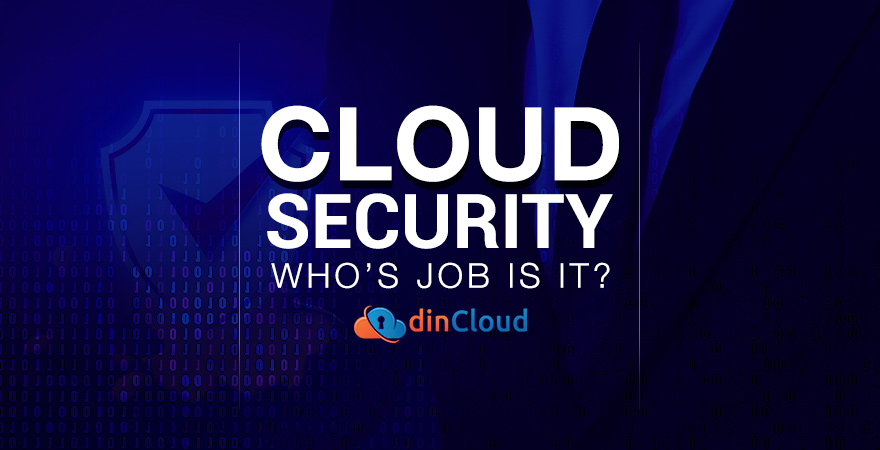As if the Amazon Cloud’s four day outage and permanent loss of some customer data wasn’t enough, the hacking of Sony’s PlayStation network has left many current and potential Cloud Computing customers feeling less than optimistic about their company’s data or their own personal information in the Cloud.

But is Sony really a Cloud or just some Internet facing resource gone haywire? I’m with Larry Ellison on this one: a lot of stuff dubbed “Cloud” is, in reality, just some Internet hosted resource, upon which the Cloud moniker doesn’t deserve to be pasted; yet all this is happening right before our very eyes.
Over the years, some tech related terms such as the cloud, artificial intelligence (AI) and machine learning (ML) have been misused to astronomical proportions. While the abusers of these terms are doing this for small gains, they are actually inflicting heavy damage to these game changing technologies in terms of perception.
Hosting stuff on the Internet (and getting it hacked for that matter) is certainly nothing new. But against the stark backdrop of Cloud Computing, a few “ooo’s” and “ahhh’s” creep out in an almost Orwellian scenario where we let our minds wander into the big future WHAT-IF?
Adding fuel to the fire was a recent study of Cloud Providers (CSP) by the Ponemon Institute. It essentially concluded there was a general malaise or discomfort on the topic of security by 73% or more of such providers, which could best be summarized as “hey, not our problem”. Confidence inspiring, to be sure?
At dinCloud, we’ve always said that “if it’s not secure, it’s not worth using!” Maybe we’re just restrained by our own business philosophy which revolves around mutual trust, mutual investment, and mutual growth. Old fashioned, I know. But we prefer to stick with these values, which is why dinCloud was purpose built for Cloud Security woven into its very DNA from the very first day.
Let’s dive deeper into how cloud security actually works. We protect the endpoints, the hypervisor clusters, the Cloud itself, storage systems, and all private links to or from the Cloud with encryption, anti-virus, malware protection, intrusion prevention systems (IPS), two-factor authentication (2FA), and other protection tools.
Add monitoring, alerting, log parsing, certified engineers (CCIE, MCITP, VCP, etc.) across a wide array of disciplines (Cisco, Microsoft, VMware, etc.) to the mix. We also use granular hardware (no blade systems!) and layer 2 partitioning so that we can isolate any potential for service outages as well as offer dedicated infrastructure to individual customers.
This can then be highly customized with various bandwidth and other guarantees so that Service Level Agreements (SLA) are tied to real engineering and quantifiable performance. This is key for many of our customers who have very specific regulatory, licensing, performance, geographic, data protection, and other important parameters to meet.
We obtain snapshots or backups of our entire range of cloud services every 1 hour for 7 days in electronic form. Then, we automatically back these up offsite to one of our other global data centers that’s at least a 1,000 miles away.
Further, we secure another stream of backups every 24 hours, which are archived for 30 days in case you want to revert to a more preferred configuration in the past. We can design any Business Continuity (BC) and / or Disaster Recovery (DR) scenario requested by a customer.
Before we obtain the backups of your valuable enterprise data, we scan and cleanse your data from potentially any harmful elements that can impede its full restoration in case of any contingency. This is a very critical component of any backup mechanism, as modern cyber threats are capable of affecting your backups as well.
Our valuable cloud users enjoy unparalleled peace of mind knowing they get at least these minimums from us, no matter how much they may be paying. All this, yet our Cloud is easy to use since we fit into your infrastructure as a private or public cloud extension. We may use your IP addresses and streamline other small but important things which remove the annoyance of figuring out how to leverage cloud securely and effectively.
What makes dinCloud stand out from the competition is that our cloud security blanket doesn’t end merely at our cloud infrastructure. We adopt a holistic view to security in the cloud. Therefore, we also offer one of the world’s best cyber security solutions at the endpoint and server levels, called Sophos Intercept X for Endpoints and Servers.
By integrating this world class suite of cyber security into your cloud deployment, you will be able to secure one of the most critical components of your infrastructure that are employee’s endpoint devices. These devices are a major weak link in the broader picture of cloud security.
Remember, cloud security works best under a “shared responsibility model”. No matter how vigilant and effective our controls at the cloud infrastructure level, an impregnable security in the cloud is not achieved without your support as our valued cloud users. Together, we will secure your data and processes in the cloud from internal vulnerabilities and external threats.
If you look up at the sky, no two clouds are the same. And if you look minutely at dinCloud v/s the competition, you’ll find the same thing is true here as well. If you glance at our company’s logo, you’ll be able to contemplate the level of importance we attach to cyber security. dinCloud’s infrastructure has shown commendable resilience in security consistently over the past many years.
Talk with a Cloud Solutions Specialist TODAY and we can show you many other differentiators that will motivate you to commence your cloud journey with us, securely.


